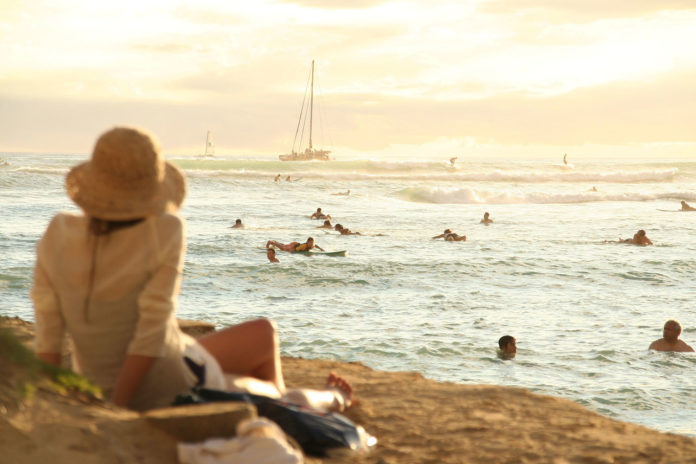Skin, the human body’s largest organ, is our first line of defense against infection and pathogens. The gut microbiomes that live on the surface of our skin plays a vital role in these defense measures of this organ.
Now, researchers from the University of California, Irvine, found that only 10 minutes of the swim in the ocean can temporarily change the skin’s microbiome and potentially increases the risk of infection.
Nowadays, many beaches have poor water quality due to the wastewater runoff, pollution, stormwater runoff and exposure to these harmful bacteria can cause skin infection, ear infection, stomach problems and so on. Therefore, it has become essential for an individual to understand how skin’s bacteria changes when exposed to ocean water.
“Our data demonstrate for the first time that ocean water exposure can alter the diversity and composition of the human skin microbiome,” said Marisa Chattman Nielsen, MS, a Ph.D. student and the lead author on the study. “While swimming normal resident bacteria were washed off while ocean bacteria were deposited onto the skin.”
For their study, the team visited beach and selected nine people who met criteria of no sunscreen use, infrequent exposure to the ocean, no bathing within the last 12 hours, and no antibiotics during the previous six months. The researchers swabbed the participants on the back of the calf and sent them to swim for 10 minutes before they enter into the water. The researchers swabbed their skin again, as well as at six and 24 hours post-swim after they returned back and wholly dried off.
They had found that, before the swim, the microbiome of each volunteer were easily distinguishable, but after swimming, their microbiomes changed and became much more similar to one another, which were completely different from the “before swim” communities.
This change in the microbiomes community was temporary. The team stated that after six hours of swimming the microbiomes had begun to revert their pre-swim composition and after 24 hours they were far along in this process.
One of the most exciting findings was that Vibrio species which were detected on the skin of each person. Many of these Vibrio’s species are mostly harmless, but some are responsible for diseases like cholera or can rarely cause flesh-eating skin infections, especially in people with weakened immune systems.
The team’s research was only able to detect the presence of Vibrio bacteria, not their specific species.
They had found that bacteria were still present on many of the volunteers even after six hours of post-swim, but by 24 hours they were present only on one individual. “While many Vibrio is not pathogenic, the fact that we recovered them on the skin after swimming demonstrates that pathogenic Vibrio species could potentially persist on the skin after swimming,” said Nielsen.
The fraction of the Vibrio species detected on the skin of participant was more than ten times greater than the fraction in the ocean water sample suggesting a specific affinity for attachment to the human skin, as per the research team.
“Recent studies have shown that human skin microbiome plays an important role in immune system function, localized and systemic diseases, and infection,” said Nielsen. “A healthy microbiome protects the host from colonization and infection by opportunistic and pathogenic microbes.”
The research presented at ASM Microbe 2019, the annual meeting of the American Society for Microbiology.
